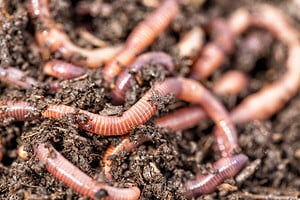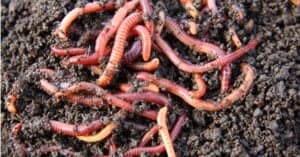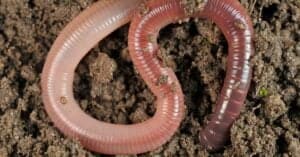Worms are invertebrate animals with very soft and elongated bodies. They are some of the most invasive earth species and comprise up to one million different types. The most popular type of worm is the earthworm and like most other worms, they are hermaphrodites. Besides their hermaphroditism, another interesting fact about worms is that they poop. This is considered an incredible fact by many due to their small, “lifeless” bodies that do not seem to retain any food substance. In this article, we discuss worm poop and how it works. Let’s get started.
What Does Worm Poop Look Like?
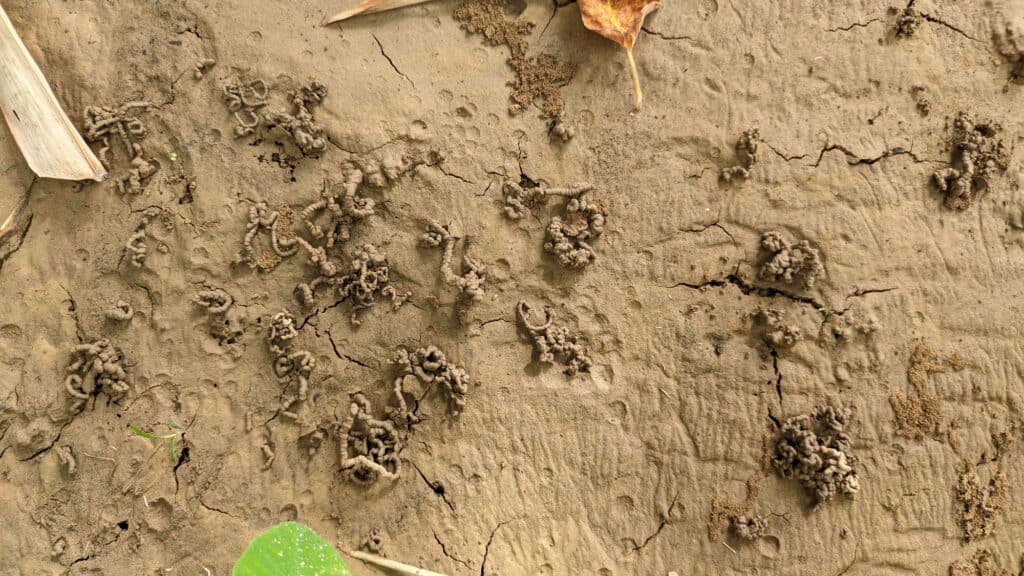
Worm poop looks somewhat like little piles of soil and they are typically lumpy and brown with a soil-like feel.
©AzriStyle07/Shutterstock.com
As we mentioned before, many people find it hard to believe that worms actually possess an excretory system. Hence, it makes sense to assume that most people also haven’t the slightest idea as to what worm poop looks like. If you are one of such people, you are in luck as we plan to describe it as vividly as possible.
Since worms are themselves infinitesimal creatures, you can imagine how small and unnoticeable their poop would be. Worm poop looks somewhat like little piles of soil and they are typically lumpy and brown with a soil-like feel. It is often detected early in the morning when it is still somewhat fresh.
The reason for the soil-like texture of worm poop is that they are often lumped with some earth. As you probably know, worms are subterranean eaters which means they consume a great deal of earth while trying to feed since they have no hands and their view is pretty dark.
Do Worms Pee?
Since worms poop like the majority of other animals, it is pretty logical to wonder if they pee as well. However, worms do not pee, at least not in the sense that mammals do. They have a body part known as the nephridium which is responsible for ejecting excess water. The nephridium is a tubule found on different segments of the worm.
How Do Worms Poop?
The digestive process of worms is somewhat similar to that of humans, although less detailed and complicated. They ingest food into their bodies through the mouth which is then ground up by the gizzard and further travels into the intestines where the food is broken down and useful chemicals are properly absorbed. Undigested food and soil particles leave their bodies through the rectum/anus and this fecal matter is generally known as castings.
Do Worms Poop Smell?
One of the very first things that come to mind when anyone hears of poop, whether by humans or animals, is a pungent smell. Animals whose poop smell horribly include dogs, cows, and pigs, while we have animals whose poop does not smell at all, among them are worms.
Besides the fact that worm castings appear in little piles, the major reason worm poop does not smell is the absence of ammonia. If anything, worm poop smells like wet soil and is neither pleasant nor pungent. It certainly has a more tolerable odor than the poop of most other animals, though.
What Do Worms Eat?
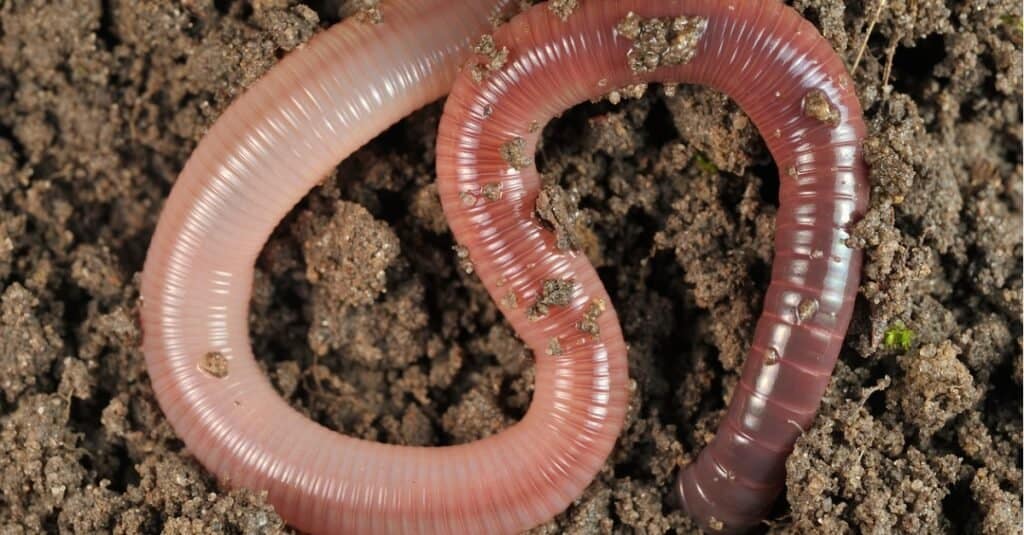
Worms’ favorite foods include paper, vegetables, animal waste, and fungi.
©D. Kucharski K. Kucharska/Shutterstock.com
Most people have actually never seen a worm eat; some can’t even create a mental picture of that happening in their minds. However, like every other living thing, worms eat to survive, which is why they also poop.
Worms are generally believed to have an omnivorous diet which means they consume both plant and animal matter. They like to eat organic matter which covers just about anything that can’t get away from their grasp. Their favorite foods include paper, vegetables, animal waste, decaying matter (plant/animal), bacteria, fruits, micro-organisms, fungi, and eggshells, among others. In the process of scouring for food, worms often ingest pieces of earth, which is why their poop feels lumpy and soil-like.
Also, lots of people wonder how worms actually find these foods seeing as they do not have eyes, ears, and even noses. While it is true that they do not possess these senses, worms have light receptors in place of eyes that help them tell light apart from darkness. They also have special abilities to detect any vibrations around them. And rather than trying to smell food, they are known to exercise their sense of taste to discover food particles around them. And once they find food, they consume it with all the strength they can muster.
Speaking of consumption, since they don’t have teeth, worms steer food into their mouths through a liplike bulge, after which the pharynx grabs it and the digestive process continues from there.
If you have pet worms, especially for composting purposes, experts advise feeding them with food such as vegetables, eggshells, paper, and decomposing plant matter, to mention just a few. You can also buy specially formulated worm meals for better results and convenience.
Do Worms Fart?
Worms don’t fart; at least not in the way that humans and some animals do. However, they do eject trapped gas and this is connected to their breathing system as opposed to their digestive system. This expulsion of gas is a core part of their physiology as it enables them to get rid of unwanted carbon dioxide (CO2). Just in case you were wondering, this ejected gas does not bear a malodorous smell like normal farts, and even if they did, you’d probably not be able to smell it since they live right in the earth and are several inches away from your nose.
Is Worm Poop Beneficial?

Worm castings are effective as fertilizers.
©iStock.com/RomoloTavani
Not only do worms poop, but the casting is also very much beneficial as it serves composting purposes. Worm castings are effective as fertilizers as they supply important nutrients to plants and help them grow larger and stronger. It also bolsters the plant’s resistance to heat, diseases, and pests. Worm castings also contain humus which improves the soil’s aeration and water retention whilst also cushioning the damage of soil erosion.
Up Next:
- Discover the Largest Worm in the World
- Can You Get Worms From Dogs? What Science Says
- Discover the Crazy ‘Walking Worm’ With a Spiked Back 500 Million Years Old
- Worm Lifespan: How Long Do Worms Live?
The photo featured at the top of this post is © iStock.com/Mik122
Sources
- Meadowia, Available here: https://meadowia.com/earthworm-poop-benefits-and-more/
- SimpleGrow, Available here: https://www.simplegrow.com/pages/does-it-smell-like-poop#:~:text=You%20might%20be%20wondering%2C%20does,the%20absence%20of%20anaerobic%20bacteria
- Wormmy, Available here: https://wormmy.com/do-worms-fart/
Thank you for reading! Have some feedback for us? Contact the AZ Animals editorial team.




